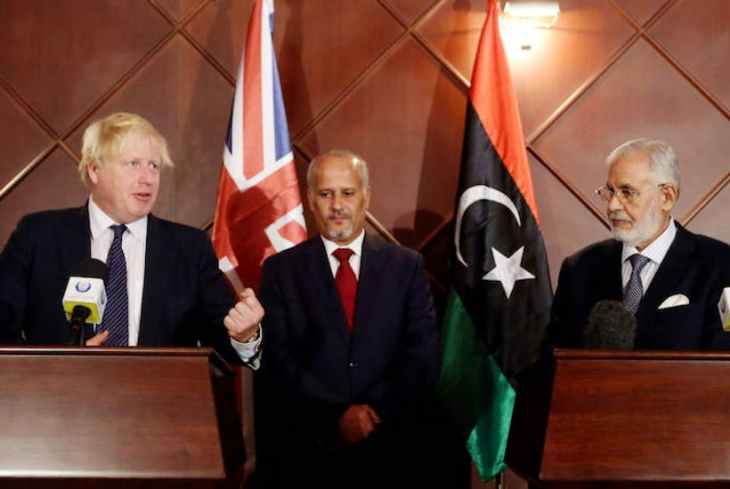I begin the week in Bamako, Mali, with a crackly telephone call to Commodore Dean Bassett, UK Maritime Component Commander in the Gulf. He informs me that HMS Montrose and the Maritime Trade Operation has seen 30 ships safely through the Strait of Hormuz. These ships had been given 24 hours’ notice for their transit. Another, Stena Impero, had not made it through. Montrose was given only 60 minutes notice for her transit. Despite increasing to flank speed, she was 20 minutes too late and steamed into the Iranian Revolutionary Guard. The anger and disappointment is evident in the Commodore’s voice as he professionally delivers his report. I thank him and his team for their efforts.
After breakfast, I travel by C-17 to Gao to visit our counter-terrorism operations and a UN peacekeeping mission. I break off to make further calls back to London regarding the Gulf. Lunch is courtesy of the French and it is spectacular. They fly all their scran in from home, although there is something profoundly wrong about eating a mini eclair in the Sahel. After lunch, I meet some of the women serving in the peacekeeping mission as both soldiers and police officers. Some want to go on to command or become police chiefs. There’s a light in their eyes when they detect a woman under the flak jacket and helmet. I head back to the C-17 and on to Blighty. Dusk falls over Brighton as we drop through the cloud. To my right, through the metre-high cockpit windows, I spy the pewter ribbon of the Thames. To my left, the sombre lights of Portsmouth glow against the petrol blue sky. There are purple fields below a neon orange sunset. A sign of a glad confident morning to come? The cockpit is calm with quiet patriotism, pride and purpose. I was pleased to see that such sights still move young aircrew as they return from missions overseas.
Back to work and my agenda. I want to end vexatious litigation against our armed forces for historic events — and the consultation is out the door. Best of all, we have seen the largest pay rise for the services since 2007: all serving personnel will earn at least the national living wage. A Cobra meeting on the situation in the Gulf is followed by calls to my opposite numbers to build support for a task group to keep shipping lanes open. In my 84 days in this job, Germany and US have both had changes of defence secretary. We’re only just getting to know each other.
On Tuesday, at the request of the Foreign Secretary, I make further calls to help find more support for freedom of navigation. Thank God for America. I then join Theresa May’s final cabinet meeting, which is followed by greetings to her successor. Afterwards, I stand my MoD teams a stiff drink. I take them through their achievements and thank them for everything they have helped me with. The following day I do the same with my other department, the Government Equalities Office, this time with cake as the sun isn’t yet over the yardarm.
I tell my private office to expect change. Ben Wallace would be my bet and, if that were the case, they’d have nothing to be worried about. They just need to keep focused on HMS Montrose. By 16.30hrs on Wednesday, in 40°C of Commons fug, I’m fired. Job done. Ours not to reason why. Good command cheerfully accepts all missions with humour and loyalty. The five-minute meeting ends with my support and my best wishes. Ditto for the chief whip. Semper fidelis. Outside, Liam Fox scans me for what awaits inside. He’s a walking trade deal encyclopaedia. I’m very sorry he is out.
The next day, I see Ben in the Commons tea room, hug him and pass on departmental intel. I pack up my office. It’s straightforward, having only recently unpacked. I open a box given to me a few days prior by a Royal Marine and Military Cross recipient, ‘because we all believe in you, Ma’am’. It’s a hip flask on which he’d had engraved ‘To Believe’. To serve in Her Majesty’s Government, at any level, is a privilege. To serve as secretary of state for defence is humbling. I will miss them all.
I finish the week in Portsmouth, where I visit the Roberts Centre which supports vulnerable families, Cosham job centre (yep, bring on the gags…) and then my surgery. My constituency team are in good spirits, preparing for a possible election. I take the hovercraft to the Isle of Wight, to deliver a heartfelt speech on the greatness of our nation. Bouncing back on the waves, I focus on the shoreline and my thoughts drift back to our ships in the Gulf. I hear the words I have just spoken played back to me — freedom, justice, duty, mercy and hope for the future.






Comments